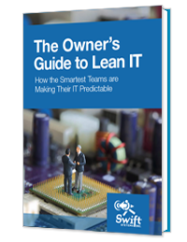
IT Services: When to Hire & When to Outsource
Outsourcing IT services is not an easy decision and once that decision is made, it’s only the beginning of the transition process. The strategic options are numerous and the right vendor can provide competent guidance for your company’s infrastructure, systems, and applications. In addition to any specific IT issues related to your business, company culture, internal procedures, industry regulatory and legal compliance requirements need to be considered along with your technical requirements.
In the early part of the last decade, a huge trend to off-shore IT managed services to other countries was booming as a method to save on IT expenses, but it was not cost effective, and in the end the IT support did not successfully integrate with many U.S. based teams. In short, there was a communications disconnect between the company’s needs and the IT service department, resulting in confusion, frustration, and downtime. Many firms abandoned their off-shoring efforts (a single type of outsourcing), as a result, many now incorrectly attribute the cause of this failure to outsourcing in general. More recently, as economic pressures and productivity demands have forced businesses to continue seeking out the most efficient options, outsourcing has re-emerged as a cost saving and competitive strategy.
Rapid adoption of new offerings based on cloud infrastructures and big data requirements refocused business IT needs towards the area of infrastructure management. Improved bandwidth availability and new virtualization technologies (collectively, the cloud) allows regional providers to offer expanded service offerings that support multiple businesses with solutions that vary from a full-suite of enterprise services or hybrid solutions based on individual company requirements, industry standards, and budgetary constraints spend. This centralization offers economies of scale not typically available to a single company hiring their own staff, or building their own infrastructure. This emergence of logistically feasible and secure multi-company platforms, and the centralization and specialization of human resources has made a lot of CFOs, CIOs, and CEOs take another look at outsourcing.
Here is a comparison of hiring a full-time IT employee versus outsourcing:
Hiring a full-time IT employee –
- Expensive hiring process, compensation, and benefits.
- Time spent managing and scheduling 24/7 IT coverage.
- Utilization: Not enough technical work at times forcing utilization with lower value tasks while paying the same higher rate.
- Issues like staff turnover and/or attrition.
- Dependency: Single point of dependency (putting all your eggs in one basket).
- Limited knowledge: Potentially limiting your company’s technological advances and advantages to one person’s technical knowledge, and experience.
- Learning new technology at your expense and experimenting with your network.
Outsourced Staffing –
- Lower total onboarding cost.
- No daily headaches of managing and monitoring an additional employee.
- Incentive driven engagement resulting in high-quality service to exceed expectation.
- Availability: Weekdays, weekend, and after hours.
- Expertise in a wide array of IT solutions using best practices.
- Cumulative team knowledge and background in IT services and support.
- CTO/CIO level roadmap planning and consultation services.
- Stability and long-term engagement assurance.
IT specialist companies allow you to outsource your IT service needs or special projects to a group of seasoned engineers for what is likely to be an overall lower cost if the relationship is structured properly. The strategic approach that is in-line with your business objectives is a decision that only you can make, however, Swift Systems can help you determine your next move.

IT systems are foundational to modern businesses. Too often, that foundation is unsteady. Unpredictable outages, insecure networks, and unreliable performance from mission-critical systems can jeopardize your entire business.
There’s a better way. Learn how.
Get in touch with us for a free consultation with one of our technical experts. We’ll review your current systems, assess your needs, and identify the coverage options to best meet them.
Get in touch with us by phone:

